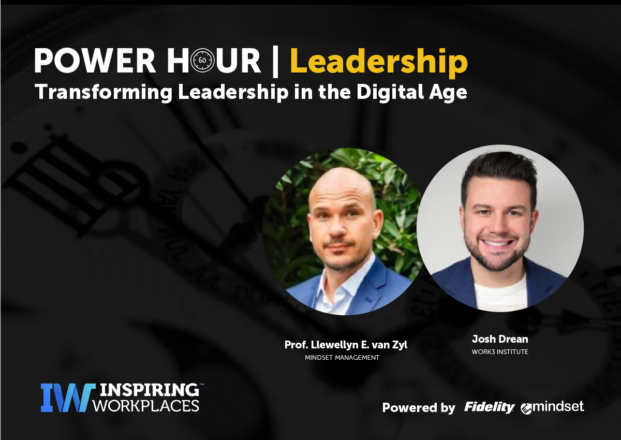
22nd November 2024
Personal Branding and Inclusion Through Value-Driven Leadership

Dr. Taylor Elizabeth highlights the growing emphasis on value-driven leadership that prioritizes shared values and inclusivity, encouraging leaders to showcase genuine emotional intelligence and authenticity in personal branding. She advocates for authentic presence and emotional intelligence to build trust, as well as a focus on continuous learning and inclusivity for a strong, aligned personal brand that resonates within diverse workplace cultures.
This article was written by Vanshika Rastogi, featuring Dr Taylor Elizabeth, published in ETHRWorld EMEA.
Within the modern, dynamic business arena, personal branding has transitioned from focusing on titles and accomplishments to showcasing genuine leadership, emotional insight, and the cultivation of trust. No longer merely about image, it now focuses on how leaders articulate their vision and connect meaningfully with others.
In an exclusive conversation with ETHRWorld EMEA, Dr Taylor Elizabeth, Emotional Intelligence and Etiquette Coach, reveals her insights on the emerging trend of value-driven leadership, which prioritises the promotion of shared values and embraces the concept of ‘inclusion for all’.
She shares, “Unlike in the past, present leaders and their teams should recognise that personal branding is not only about exceptional performance or unique skills, but rather how individuals share and promote common values that reach out to diverse groups.
This trend calls for a deeper understanding of the unique values and perspectives of every team member—whether they are newer, younger employees, seasoned professionals, or those from different cultural and socioeconomic backgrounds.”
Here are the excerpts from the interview:
1. Having worked extensively with leaders and professionals globally, how have you seen the concept of personal branding evolve? Share some specific examples.
Personal branding has evolved from being about external image to becoming a more layered reflection of authenticity, emotional intelligence, and value-based leadership. Previously, a leader’s brand was built on titles and achievements; however, today, it is based on how they lead, how they articulate their mission and their vision, and how they promote trust.
When it comes to personal branding examples, one will easily consider His Highness Sheikh Mohammed bin Rashid Al Maktoum, the Vice President and Prime Minister of the UAE, and the Ruler of Dubai. He projects himself as a great leader, promoting innovation, change, and tolerance, through his leadership and social media activities.
By consistently engaging in initiatives like the Dubai Future Foundation and various humanitarian projects, he reinforces his personal brand of forward-thinking and benevolence. This strategic branding not only endears him to the public but also amplifies his messages of hope and positivity worldwide. Through his well-managed personal brand, Sheikh Mohammed effectively inspires millions, promoting positive change and global solidarity.
2. In your experience as an Emotional Intelligence and Etiquette Coach, how do you believe personal identity investment influences leadership effectiveness and team dynamics?
The value of a truly remarkable leader is immeasurable, which is why the pursuit of leadership excellence is so prevalent. However, many focus solely on acquiring qualifications while neglecting the essence of effective communication and self-awareness. Exceptional leadership begins with a profound understanding of one’s motivations and the intrinsic meaning of leadership.
By cultivating emotional intelligence and the pivotal element of self-awareness, leaders can intentionally elevate their self-esteem and comprehend the critical importance of their skills, driven by a genuine desire to succeed.
Leaders who invest in developing emotional intelligence and personal identity are better equipped to recognise their strengths and areas for growth, allowing them to leverage their abilities effectively and seek out tools or people to fill in the gaps. Leaders who possess emotional intelligence also have self-regulation and self-expression, which are essential components to lead strong teams with high morale.
3. What are some key components of personal branding that professionals should focus on to enhance their image and communication in today’s workplace? Suggest some best practices.
In an environment where everything moves rapidly and often remotely, maintaining a strong, authentic presence is crucial. I think the simple act of putting down your phone and being present in a conversation is invaluable in today’s professional atmosphere. If you want people to respect and remember you, the most basic thing you can do is be present in a conversation.
This measure also helps reduce the investment of time spent on clearing up misunderstandings because you simply didn’t listen to what someone was saying or read your email before the meeting.
The second most important aspect of developing your personal brand is being authentic. Every single experience or challenge you face on your journey makes you who you are, and helps you emphasise your strengths. By being present and real, you will earn trust, respect, and connect with people on a deeper level while setting yourself apart in a crowded professional landscape.
Moreover, personal branding requires an unwavering commitment to continuous learning. True leaders never stop growing, both personally and professionally. They seek out new knowledge, embrace challenges, and adapt to change, ensuring they remain relevant and effective in their roles.
4. How can organisations support their employees in developing personal brands that not only reflect individual strengths but also align with the company’s values and mission?
In order to build a team that will prioritise customers’ satisfaction based on the company’s beliefs and values, you must first learn how to value your team. The most effective teams are composed of individuals who feel that they are valued for the diversities that they bring into the group.
Organisations can promote this atmosphere by fostering a culture where all partners communicate freely and supportively, and do not adopt self-defensive or punitive practices whenever errors occur. Apart from monetary benefits, appreciation goes a long way in creating this environment. Those organisations where employees believe that their contributions matter and that their initiatives are praised, also promote a healthy work-life balance.
By providing flexible arrangements, realistic demands, and a culture of mutual respect, they demonstrate that they value their people as ‘people’, not only as ‘workers’. In turn, this engenders the employees’ commitment to and alignment with the mission and core values of the organisation.
When it comes to developing personal brands for employees, one must encourage employees to leverage their unique qualities while making sure that these qualities are aligned with the company’s goals.
The interrelationship between personal growth and professional growth is intricate. Employees become more aligned with the mission of the company when they feel empowered, supported and appreciated. This orientation is beneficial not only to the personal brand of the employee but also that of the firm. Valuing your employees and supporting them helps build a workforce that is engaged and well-aligned with the business’ future vision. When employees appreciate their place of work, they will more likely promote the name of the company even through their personal brands, thus bridging the gap between personal and corporate success.
To continue reading this article in full click here: Dr Taylor Elizabeth on personal branding and inclusion: It’s all about value-driven leadership






